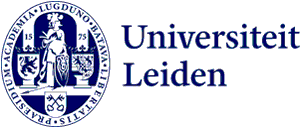
‘Using real-world data to enhance our healthcare system’
On 16 May 2022, Professor Michel Wouters from the Department of Biomedical Data Sciences at the Leiden University Medical Centre (LUMC), will deliver his inaugural lecture titled ‘Quality of Cancer Care: why the real world matters’. Wouters will use the opportunity to describe how quality registries are essential in the collection of ‘real-world data’ that can enhance our healthcare system.
In 2010, Wouters became co-founder of the Dutch Institute for Clinical Auditing (DICA) together with LUMC Professor Rob Tollenaar and Dr Eric Hans Eddes, surgeon in Deventer at the time. “Our objective was to establish clinical quality measurements and standards (quality registries) throughout the Netherlands to improve the quality of hospital care”. The Professor has focused on developing and implementing multidisciplinary quality benchmarks for the entire field of oncology care ever since.
Quality registries
But registries do not only serve to provide hospital workers with standardised information and feedback about care-quality. “They can also provide patients with information about what to expect of the outcome of treatments in their specific situation” says Wouters. According to him, ‘real-world data’ obtained at registries enables medical specialists to continuously refine their services, and is key for improving the Dutch healthcare system at all levels. “Especially when it comes to using innovative (and often expensive) new therapies adequately, monitoring treatment strategies and their effectiveness in daily clinical practice can help regulate healthcare costs”.
Reliable, meaningful and applicable measurements
Indeed, during the last decade, DICA audits have led to significant improvements of patient outcomes in the Netherlands for several tumour types, including breast, lung, oesophageal, gastric, pancreatic and colorectal cancer. “The future of effective and personalised cancer treatments relies on combining real-world data to molecular, genomic and imaging information, as well as to patient reported outcomes of care”. Thus, Wouters goal – and main reason for his appointment - is to make oncological care-quality measurements more reliable, meaningful and useful for all healthcare stakeholders. “In particular, I wish to achieve this by unlocking the information that is generated in each patients care path, but stored in different systems and in multiple hospitals or databases”.
From data to guidelines
With a recently attained ZonMW grant from the Association of Surgeons in the Netherlands, Wouter’s research group will investigate how real-world data from quality registries can be translated into evidence-based guidelines. “This way, we can support shared decision-making between patients and doctors within daily practice, making treatments more effective while simultaneously taking into account the personal goals and preferences that each patient has in life”.
